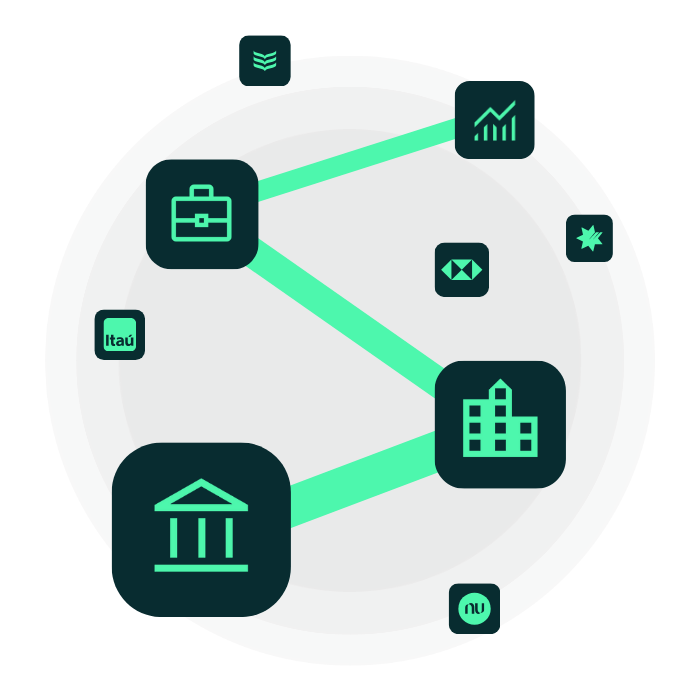
Smart Data and Open X: Unlocking Secure and Interoperable Ecosystems
Raidiam’s technologies can accelerate the development of interoperable data sharing frameworks in energy, transport, retail and beyond – unlocking the economic value of Smart Data, empowering consumers and enhancing competition.
Smart Data in the UK
The UK has positioned itself at the forefront of the global Smart Data revolution, leveraging innovative frameworks to empower consumers, enhance competition and drive economic growth.
Smart Data refers to the secure, consent-based sharing of customer-generated data, such as financial transactions, energy usage or telecommunications patterns, with authorised third-party providers (ATPs) to enable personalised services, improved decision making and market innovation.
While initiatives like Open Banking and Open Finance have demonstrated the transformative potential of these ecosystems, scaling Smart Data across sectors represents a significant challenge due to technical, regulatory and trust-related barriers.
Raidiam’s proven expertise in designing secure data sharing infrastructures can address many of these challenges to realise the potential of an interoperable Smart Data economy.
Raidiam's Role in Open Banking and Beyond
At Raidiam, we've played a key role in the success of Open Banking in the UK. By defining the standards and delivering the trust and security services that underpin the ecosystem we've helped shape the future of financial services. Now, we see Open Banking's trusted frameworks and standards as a launchpad for something even greater: a Smart Data economy that could transform industries far beyond financial services.

UK Smart Data Scope
The UK government’s Smart Data Roadmap identifies seven priority sectors for implementation: energy; finance; retail; transport; homebuying; telecommunications; and banking.
For example, in transport, Smart Data could enable seamless integration of fare payment systems across operators, whilst in energy, it might facilitate dynamic pricing models, based on real-time consumption patterns.
The legal foundation for Smart Data in the UK is the Data (Use and Access) Bill, which builds on the success of Open Banking, which has generated £4 billion in economic value by allowing consumers to share financial data with fintech providers.
The Challenges of Enabling Smart Data Ecosystems
As well as addressing important concerns over consumer trust and competitive commercial factors, the development of Smart Data ecosystems can be subject to specific technical and regulatory challenges:
- Datasets often reside in siloed systems with incompatible formats, requiring costly customisation for cross-sector integration
- The absence of common data standards can delay third-party service deployment
- Divergent regulatory priorities from one regulator and sector to the next risk creating fragmented ecosystems that hinder ATPs from operating across industries
How Raidiam can enable Smart Data ecosystem development
Raidiam Connect
The Raidiam Connect platform addresses technical fragmentation, providing preconfigured tools for implementing Smart Data ecosystem.
Raidiam Connect includes:
Trust Framework Manager
A centralised system for issuing digital certificates, validating ATP credentials and auditing compliance with sector-specific regulations.
API Gateway
A security layer enforcing OAuth 2.0 and FAPI (Financial Grade API) standards to encrypt data flows and authenticate requests.
Conformance Testing Suite
Automated tools to verify API adherence to interoperability standards, minimising integration errors.
Cross-Sector Interoperability with Raidiam
Raidiam ensures compatibility between disparate Smart Data schemes. Its reference architectures allow ATPs to reuse authentication protocols and data formats across industries. For example, a credit scoring ATP in banking can leverage the same API templates to access retails purchase histories, eliminating redundant development work.

Enhancing Consumer Trust
Raidiam address privacy concerns with GDPR-compliant consent management tools built in. These include:
Decoupled authentication
Users approve data sharing requests via standalone apps, reducing phishing attacks.
Real-time audit trails
Consumers can monitor data access patterns and revoke permissions instantaneously.
Federated identity
A single sign-on system across ATPs, which can cut authentication time by as much as 40%.
Why Raidiam?
-
Pioneers in data-sharingWith deep expertise in trust frameworks and secure infrastructure, we enable your success
-
Financial-grade securityTechnology built to the highest standards, including FAPI and ISO 27001, ensuring secure API protection
-
Proven track recordTrusted by banks, regulators and enterprises worldwide to power secure ecosystems
-
24/7 global supportAlways-on assistance to keep your ecosystem running smoothly, minimising downtime and risk
FAQs
How does Raidiam Connect address technical fragmentation in Smart Data ecosystems?
Raidiam Connect provides preconfigured tools to implement Smart Data ecosystems, including a Trust Framework Manager, API Gateway, and Conformance Testing Suite. These tools ensure compatibility between disparate systems, reducing the need for costly customisations.
What security measures does Raidiam Connect implement for Smart Data ecosystems?
Raidiam Connect enforces OAuth 2.0 and FAPI standards through its API Gateway, ensuring encrypted data flows and authenticated requests. Additionally, it uses digital certificates and PKI infrastructure for secure authentication and authorisation.
How does Raidiam enhance consumer trust in Smart Data ecosystems?
Raidiam addresses privacy concerns with GDPR-compliant consent management tools, including decoupled authentication, real-time audit trails, and federated identity systems. These features empower consumers to control their data sharing and monitor access patterns.
Can Raidiam Connect support cross-sector interoperability in Smart Data?
Yes, Raidiam Connect ensures compatibility between different Smart Data schemes by providing reference architectures that allow ATPs to reuse authentication protocols and data formats across industries.
Does Raidiam Connect support regulatory compliance in Smart Data ecosystems?
Yes, Raidiam Connect is designed to meet sector-specific regulations by auditing compliance through its Trust Framework Manager and ensuring adherence to standards like GDPR for data privacy.
How does Raidiam Connect simplify the integration of new services in Smart Data ecosystems?
Raidiam Connect minimises integration errors through its Conformance Testing Suite, which automates API adherence verification to interoperability standards. This accelerates the deployment of new services and reduces technical barriers.
Schedule a meeting
Schedule a meeting to discover how Raidiam can help you create secure and interoperable data sharing ecosystem.



